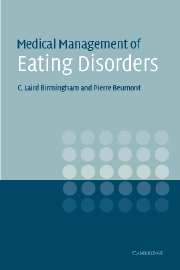Book contents
- Frontmatter
- Contents
- List of color plates
- List of contributors
- List of abbreviations
- Introduction
- PART I THE MEDICAL PERSPECTIVE
- PART II TREATMENT
- PART III SPECIAL ISSUES
- PART IV THE PSYCHIATRIC AND PSYCHOLOGICAL PERSPECTIVE
- 10 Physical disease and mental illness: pathology and psychopathology
- 11 Psychopathology and the mental status examination
- 12 Psychopathology and phenomenology
- 13 Specific psychological therapies
- PART V AREAS OF SPECIAL INTEREST
- Bibliography
- Index
- Plate section
12 - Psychopathology and phenomenology
Published online by Cambridge University Press: 18 December 2009
- Frontmatter
- Contents
- List of color plates
- List of contributors
- List of abbreviations
- Introduction
- PART I THE MEDICAL PERSPECTIVE
- PART II TREATMENT
- PART III SPECIAL ISSUES
- PART IV THE PSYCHIATRIC AND PSYCHOLOGICAL PERSPECTIVE
- 10 Physical disease and mental illness: pathology and psychopathology
- 11 Psychopathology and the mental status examination
- 12 Psychopathology and phenomenology
- 13 Specific psychological therapies
- PART V AREAS OF SPECIAL INTEREST
- Bibliography
- Index
- Plate section
Summary
The objective psychopathology of AN is difficult to label. It relates to AN unwillingness to eat, a determination to be unnaturally thin, and evident contentment with being capable of refusing to eat and being emaciated. This has been termed a hysterical symptom, a phobia of weight gain, AN obsession, a delusion, and AN overvalued idea. Probably all of these terms are justified in patients at different stages of their illness. Patients are overwhelmed by concerns about their body and protest that they feel themselves to be fat even when they are actually emaciated. They are preoccupied with ways to reduce their weight further or, at the least, to prevent any weight gain. They appear genuinely terrified at the prospect of being overweight, and some patients state openly that they would rather be dead than fat. Although so extreme as to be pathological, such beliefs represent AN exaggeration of the widespread concern about weight and shape that has become engendered in our society. In most patients with AN, these beliefs would best be termed “overvalued ideas.” When they are held stubbornly despite overwhelming evidence that the behavior has become life-threatening, they are interpreted as delusions, in that the patient is no longer able to examine them rationally.
- Type
- Chapter
- Information
- Medical Management of Eating DisordersA Practical Handbook for Healthcare Professionals, pp. 215 - 219Publisher: Cambridge University PressPrint publication year: 2004



